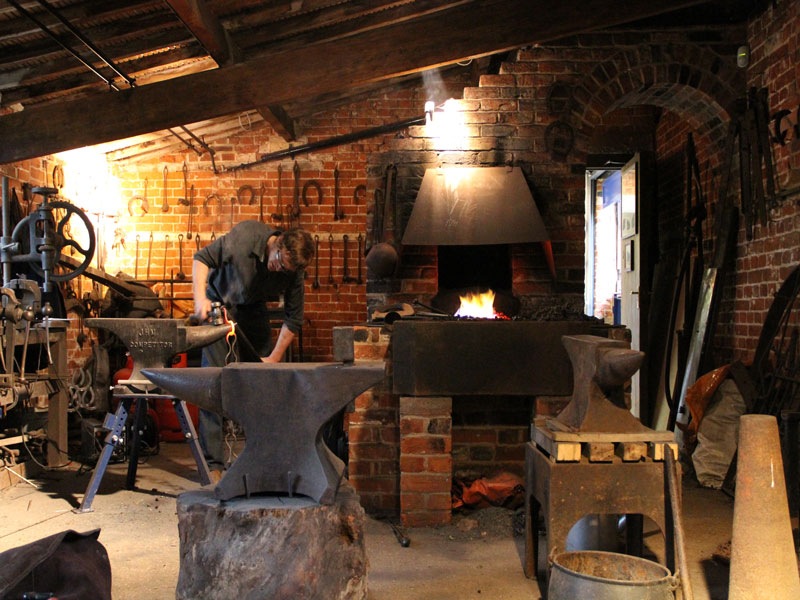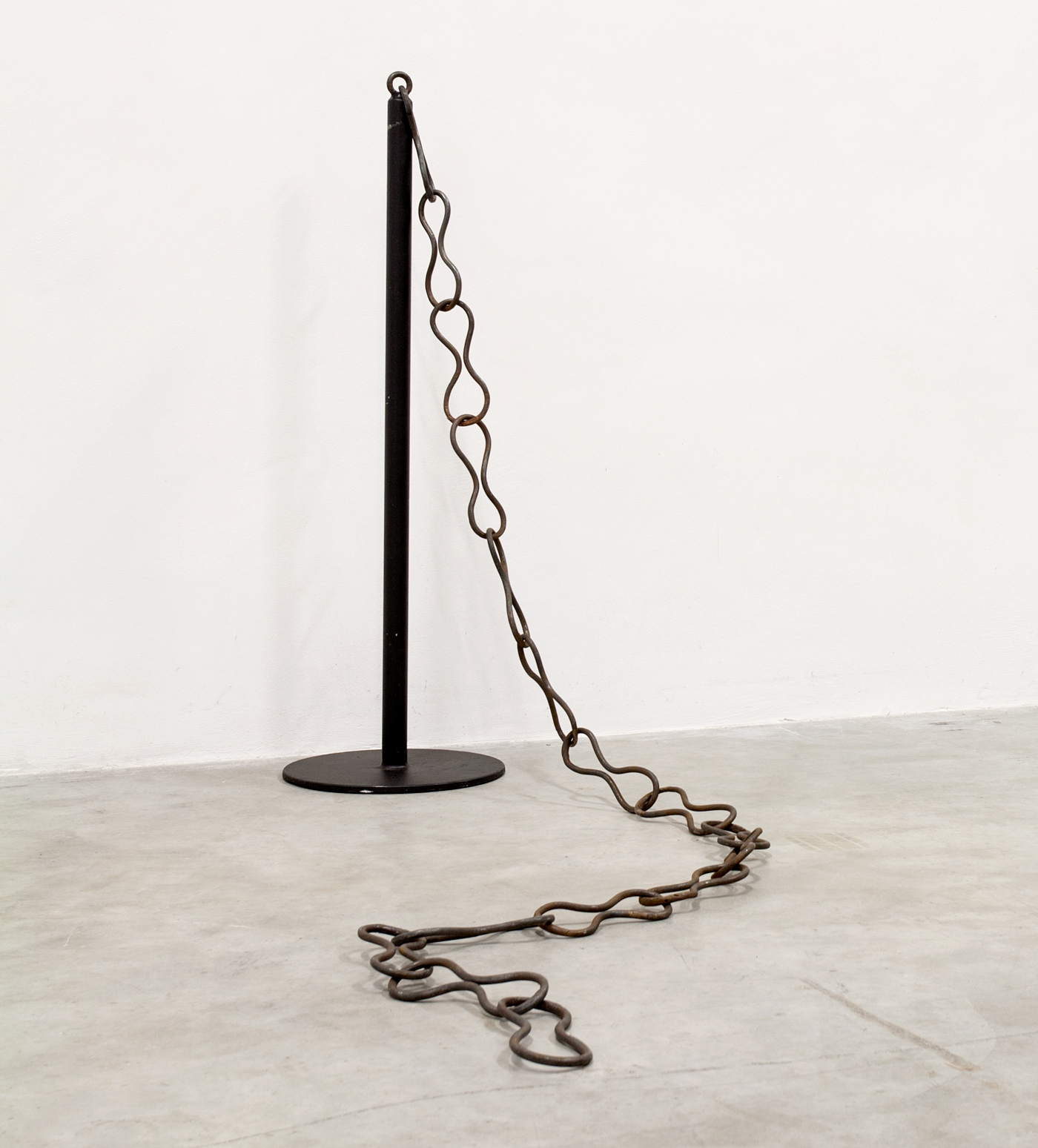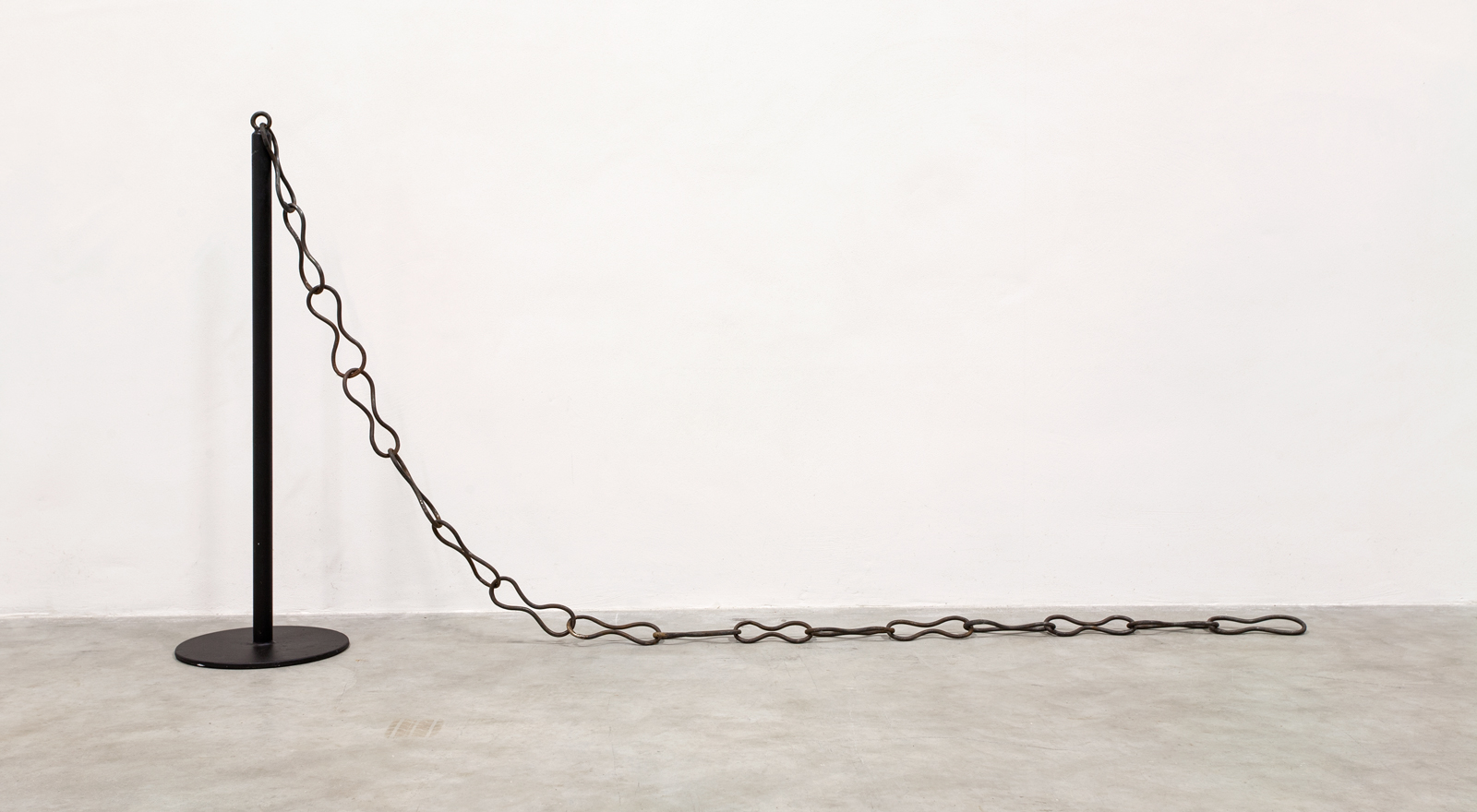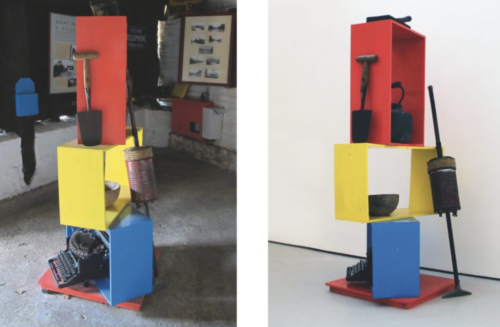Sculpture
2013
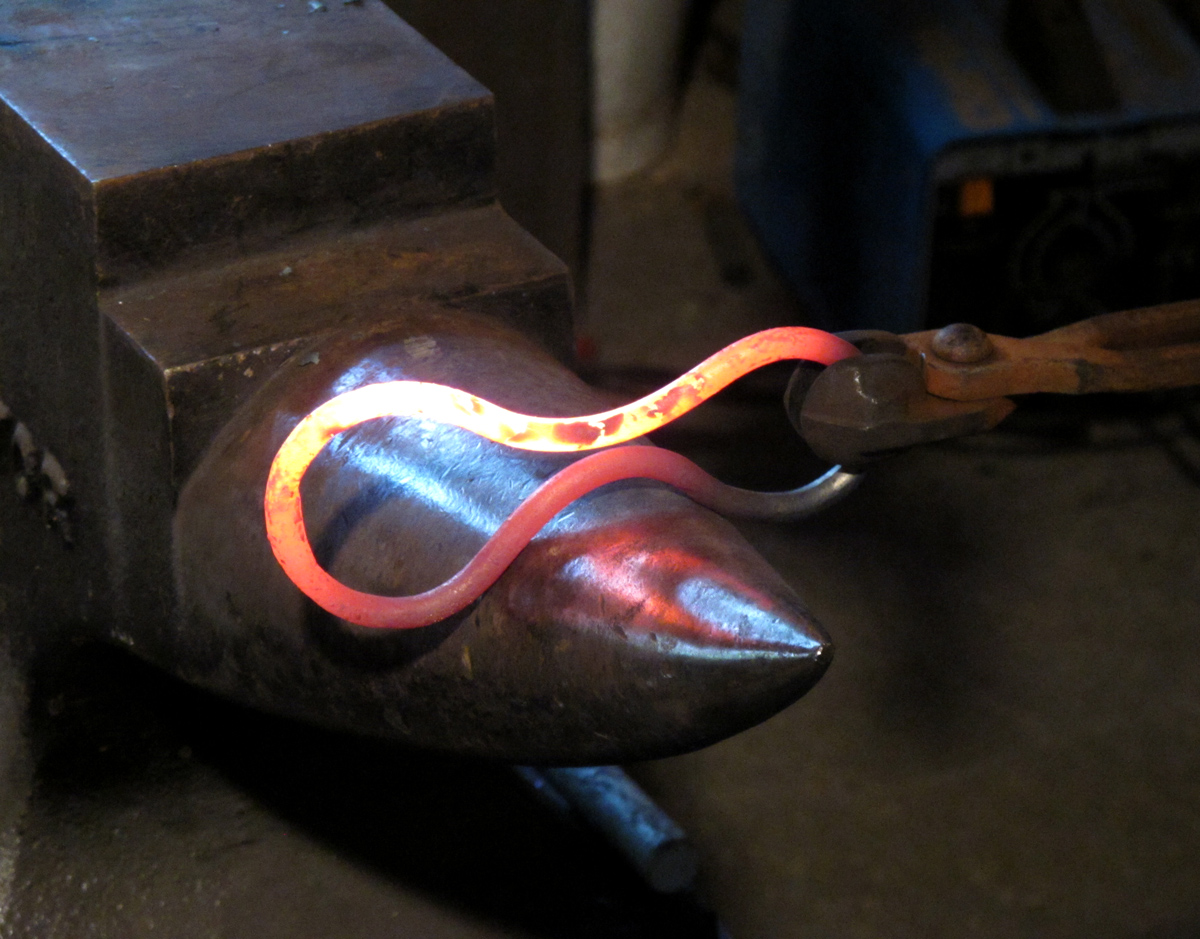 Chain produced in the workshop of the Gressenhall Farm & Workhouse Museum, 2013
Chain produced in the workshop of the Gressenhall Farm & Workhouse Museum, 2013
Museum barriers demarcate time as well as physical space; here, the present ends and the past begins. Please Touch / Please Don’t Touch, a loosened demarcation itself, is the object on display.
The title Please Touch / Please Don’t Touch refers to the many signs in museums that control your relationship to the objects on display and to the sensitive subjects like the history of slavery that history museums choose to ‘touch’ or not ‘touch upon.’
The design of the chain is based on a segment of a chain on display at the Wisbech & Fenland Museum (as part of the display on slavery and abolitionist Thomas Clarkson), which is, in turn, inspired by a chain on display in the National Museum in Dublin in Ireland. The original shape of the chain stems from a Viking design and has been extensively used throughout time due to its simple production and strength.
The sculpture was produced in a public workshop in the foundry at Gressenhall Farm and Workhouse in Dereham, normally used for craft demonstrations.
Please Touch / Please Don’t Touch
Sculpture and workshop at historical museum
Materials: Welded and painted metal stand and chain
Produced with blacksmith in the workshop of the Gressenhall Farm & Workhouse Museum, UK
Produced for History Rising, a subversive and engaging study of museum display in East Anglia (UK). By distancing museum objects from their support structures History Rising forms a critique of the assumptions that are made about how things are positioned, who chooses to display them, and how the social, political and aesthetic choices that are made in the process dictate the language of display.
History Rising has been conceived and developed by Marjolijn Dijkman and curator Jes Fernie
